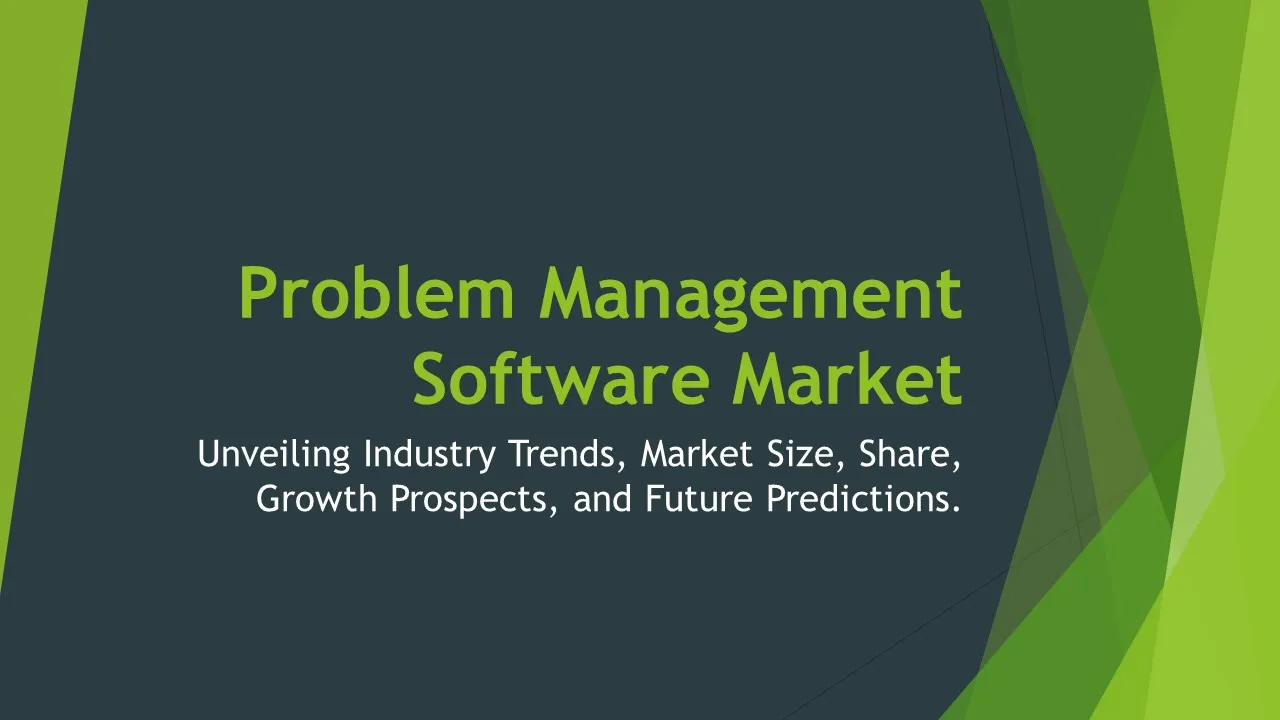IPaaS
Integration Platform as a Service (IPaaS) Market Segments - by Product Type (Cloud Service Orchestration, Data Integration, Application Integration, B2B Integration, API Management), Application (E-commerce, Healthcare, BFSI, IT & Telecom, Manufacturing), Distribution Channel (Direct Sales, Indirect Sales), Ingredient Type (Software, Services), and Region (North America, Europe, Asia Pacific, Latin America, Middle East & Africa) - Global Industry Analysis, Growth, Share, Size, Trends, and Forecast
- Report Preview
- Table Of Content
- Segments
- Methodology
IPaaS Market Outlook
The global Integration Platform as a Service (IPaaS) market is poised for substantial growth, projected to reach approximately USD 6.5 billion by 2028, demonstrating a robust compound annual growth rate (CAGR) of around 20.5% from 2021 to 2028. The increasing demand for streamlined business processes and seamless integration of cloud applications across diverse industry sectors is a significant growth factor. Organizations are increasingly adopting cloud solutions to enhance collaboration and operational efficiency, which drives the need for IPaaS solutions that enable smooth data flow between various applications. The rise of digital transformation initiatives across sectors, combined with the growing emphasis on real-time data accessibility, further fuels the market's expansion. Additionally, as enterprises increasingly migrate to cloud-based infrastructure, the demand for effective integration strategies is anticipated to grow, leading to increased investments in IPaaS technologies.
Growth Factor of the Market
The growth of the IPaaS market is primarily driven by the accelerated pace of digital transformation across industries. Organizations are increasingly looking to enhance their operational efficiency, reduce costs, and improve customer experiences, which necessitates the integration of various applications and services. The advent of advanced technologies such as artificial intelligence and machine learning has also played a pivotal role in enhancing the capabilities of integration platforms, enabling smarter data processing and analysis. Furthermore, the growing trend of remote work has prompted businesses to adopt cloud-based solutions that offer flexibility and scalability, further propelling the demand for IPaaS solutions. The rising adoption of e-commerce and online services, particularly in the wake of the global pandemic, has amplified the need for efficient integration of B2B and B2C applications. This convergence of digital initiatives, coupled with an increasing focus on data-driven decision-making, is set to sustain the momentum of the IPaaS market.
Key Highlights of the Market
- The global IPaaS market is projected to grow at a CAGR of 20.5% from 2021 to 2028.
- North America holds the largest share of the IPaaS market, driven by the high adoption of cloud technologies.
- Data Integration segment is expected to witness significant growth due to the increasing need for data-driven insights.
- Healthcare and BFSI applications are leading sectors utilizing IPaaS solutions for seamless integration.
- API Management is emerging as a crucial component in enhancing connectivity between disparate systems.
By Product Type
Cloud Service Orchestration:
Cloud Service Orchestration is a critical aspect of the IPaaS market, enabling organizations to automate and manage cloud services seamlessly. This product type allows businesses to integrate various cloud applications and services, orchestrating workflows that enhance efficiency and reduce operational complexities. The growing reliance on multiple cloud providers and platforms has made orchestration indispensable, ensuring that data flows seamlessly between different services. By leveraging Cloud Service Orchestration, organizations can optimize resource utilization, improve service delivery, and achieve greater agility in response to changing market dynamics. As enterprises continue to adopt multi-cloud strategies, the demand for orchestration solutions is expected to surge, driving significant growth in this product segment.
Data Integration:
Data Integration serves as a foundational element of IPaaS, enabling businesses to consolidate data from various sources for comprehensive analysis and reporting. The rising volume of data generated from diverse applications necessitates robust integration solutions to ensure that accurate and timely insights are available for decision-making. Data Integration solutions facilitate the extraction, transformation, and loading (ETL) of data, allowing organizations to create a unified view of their operational data. As companies increasingly recognize the value of data-driven strategies, the demand for effective data integration solutions is anticipated to grow. This segment is expected to witness notable advancements in technologies such as real-time data processing and automated data quality monitoring, further enhancing its market potential.
Application Integration:
Application Integration is crucial for ensuring that disparate applications within an organization can communicate effectively. This type of integration allows businesses to leverage existing software investments while enhancing functionality. As companies adopt a plethora of SaaS applications, the need for Application Integration becomes paramount to streamline workflows and improve productivity. With the ability to connect on-premises and cloud-based applications, organizations can achieve greater coherence in their operations, leading to improved customer experiences and operational efficiencies. The increasing complexity of IT environments is driving demand for sophisticated Application Integration solutions, which will contribute to the overall growth of the IPaaS market.
B2B Integration:
B2B Integration is essential for facilitating communication and transactions between businesses, streamlining processes such as order management, invoicing, and inventory tracking. As organizations increasingly engage in online commerce and digital partnerships, the need for seamless B2B Integration solutions has become critical. IPaaS platforms provide a framework for automating B2B transactions, reducing manual efforts, and minimizing errors. Additionally, the growing trend of e-commerce and globalization has heightened the demand for B2B Integration, as businesses seek to connect with suppliers, partners, and customers efficiently. This product type is expected to experience significant growth, driven by the ongoing evolution of digital supply chains and commerce platforms.
API Management:
API Management is a key element of the IPaaS landscape, enabling organizations to create, manage, and secure application programming interfaces (APIs) that facilitate communication between different software applications. As businesses increasingly rely on APIs to enable connectivity and integration between systems, the need for effective API Management solutions has surged. These solutions provide capabilities such as API analytics, usage monitoring, and security enforcement, which are vital for maintaining the integrity and performance of integrated applications. The rise of microservices architecture and the growing emphasis on digital transformation initiatives are driving demand for robust API Management, positioning it as a significant growth driver within the IPaaS market.
By Application
E-commerce:
The E-commerce sector has become a key driver of the IPaaS market, as businesses seek to integrate various online platforms, payment gateways, and inventory management systems to create a seamless shopping experience. With the exponential growth of online retail, the demand for efficient integration solutions is paramount to ensure that all components of the e-commerce ecosystem work harmoniously. IPaaS solutions allow retailers to synchronize data across multiple channels, enhance customer engagement, and streamline order fulfillment processes. As consumers increasingly expect personalized and efficient shopping experiences, e-commerce businesses are turning to IPaaS to deliver the flexibility and responsiveness required in today's competitive landscape.
Healthcare:
The Healthcare industry is experiencing a transformation, and IPaaS solutions are at the forefront of this change by facilitating the integration of diverse healthcare applications, electronic health records, and patient management systems. The ability to share critical information seamlessly among healthcare providers, insurers, and patients is essential for delivering high-quality care. IPaaS enables healthcare organizations to achieve interoperability, ensuring that patient data flows smoothly across various systems while maintaining compliance with regulations. As telehealth and digital health solutions become increasingly prevalent, the demand for effective integration strategies in healthcare is likely to rise, making it a significant application segment within the IPaaS market.
BFSI:
The Banking, Financial Services, and Insurance (BFSI) sector relies heavily on integrated systems for efficient operations, regulatory compliance, and enhanced customer experiences. IPaaS provides BFSI organizations with the capability to integrate legacy systems with modern applications, enabling a seamless flow of information across various platforms. The need for secure and compliant data sharing in BFSI has heightened the demand for robust integration solutions that can ensure data integrity and security. Furthermore, as the industry undergoes digital transformation, the adoption of IPaaS solutions is expected to accelerate, allowing BFSI organizations to improve operational efficiency and enhance service delivery to their customers.
IT & Telecom:
The IT & Telecom sector is characterized by rapid technological advancements and the need for seamless integration of diverse applications and services. IPaaS solutions play a crucial role in connecting telecommunications systems with IT applications, enabling organizations to enhance service delivery and customer support. With the proliferation of cloud computing, the integration of traditional telecom infrastructure with cloud-based solutions is becoming increasingly important. IPaaS enables telecom providers to optimize their operations and deliver innovative services, making it a vital application segment driving growth in the market. Furthermore, the increasing emphasis on digital transformation in the IT & Telecom sector will likely result in heightened demand for IPaaS solutions.
Manufacturing:
The Manufacturing sector is undergoing a digital revolution, necessitating the integration of various systems and processes to enhance operational efficiency and productivity. IPaaS plays a critical role in connecting production machinery, inventory management systems, and supply chain applications, allowing for real-time data sharing and collaboration. The rise of Industry 4.0, characterized by smart factories and automation, is driving demand for integration solutions that can facilitate the seamless exchange of information across the manufacturing ecosystem. As manufacturers seek to optimize their operations and reduce costs, the adoption of IPaaS solutions is expected to grow, positioning manufacturing as a significant application area within the IPaaS market.
By Distribution Channel
Direct Sales:
Direct sales represent a significant distribution channel for IPaaS solutions, allowing vendors to establish a direct relationship with their customers. This approach provides organizations with personalized experiences and tailored solutions that align with their specific integration needs. Direct sales enable IPaaS providers to engage directly with enterprises, offering ongoing support and maintaining a closer understanding of customer requirements. This channel is prevalent among larger enterprises that seek comprehensive integration solutions, leading to a strong emphasis on relationship-building and service quality. With the growing complexity of IT environments, the demand for direct sales channels in the IPaaS market is likely to remain robust as businesses prioritize expert guidance and support in their integration initiatives.
Indirect Sales:
Indirect sales channels are also gaining prominence in the IPaaS market, as vendors leverage partnerships with resellers, distributors, and system integrators to broaden their reach. This approach allows IPaaS providers to tap into new markets and customer segments, enhancing their overall market presence. By collaborating with trusted partners, vendors can deliver enhanced value propositions and integrations tailored to specific industries or business needs. Indirect sales channels are particularly effective in reaching small and medium-sized enterprises (SMEs) that may not have the resources to engage directly with vendors. As the demand for IPaaS solutions continues to rise, the significance of indirect sales channels is expected to grow, enabling providers to maximize their market penetration.
By Ingredient Type
Software:
Software is a critical ingredient type within the IPaaS market, encompassing the core functionalities that enable integration between various applications and services. IPaaS software solutions provide an array of tools that facilitate data mapping, transformation, and process automation, allowing organizations to streamline their integration efforts. The growing complexity of IT landscapes, characterized by the proliferation of cloud applications, necessitates effective software solutions capable of managing diverse integration scenarios. As organizations increasingly recognize the value of software-driven integration, the demand for innovative and user-friendly IPaaS software is expected to surge, driving significant growth in this ingredient type.
Services:
Services play a vital role in the IPaaS ecosystem, encompassing consulting, implementation, and support services that help organizations effectively leverage integration solutions. IPaaS service providers offer expertise in customizing integration strategies, ensuring that businesses can navigate the complexities of their unique environments. The increasing reliance on cloud solutions necessitates a robust service component, as organizations seek assistance in optimizing their integration processes and achieving maximum value from their investments. Additionally, the growing trend of hybrid cloud deployments is amplifying the demand for services that facilitate seamless integration across on-premises and cloud-based applications. As businesses prioritize effective integration strategies, the services aspect of the IPaaS market is poised for continued growth.
By Region
North America is currently the largest regional market for IPaaS, accounting for a significant share of the global market due to the rapid adoption of cloud technologies and the presence of major technology players in the region. The region's emphasis on digital transformation, coupled with the need for efficient integration solutions, has propelled the demand for IPaaS offerings. With a projected CAGR of 22% during the forecast period, North America is expected to maintain its dominant position as enterprises increasingly focus on enhancing their operational efficiencies and customer experiences through advanced integration strategies. The region's well-established infrastructure and a favorable business environment further contribute to the growth of the IPaaS market.
Europe follows closely in the IPaaS market, driven by the increasing need for efficient data management and integration solutions across various sectors, including healthcare, finance, and manufacturing. The region has witnessed a surge in digital transformation initiatives, leading to a growing demand for IPaaS solutions that can facilitate seamless connectivity between applications. Increasing regulatory requirements concerning data protection and privacy have further underscored the importance of secure integration strategies, driving organizations to invest in robust IPaaS solutions. While the European market is projected to grow at a steady CAGR of 18% over the forecast period, the increasing focus on compliance and data governance will continue to shape the landscape of the IPaaS market within the region.
Opportunities
The IPaaS market presents numerous opportunities for businesses looking to enhance their integration capabilities and streamline operations. One of the most significant opportunities lies in the rising demand for hybrid integration solutions, as organizations increasingly adopt a combination of on-premises and cloud-based applications. By offering IPaaS solutions that cater to hybrid environments, vendors can position themselves as leaders in a rapidly evolving market, addressing the unique challenges faced by enterprises navigating complex integration landscapes. Furthermore, the expansion of the Internet of Things (IoT) presents another lucrative opportunity for IPaaS providers, as companies seek to integrate a growing number of connected devices and applications into their existing ecosystems. This trend underscores the necessity for scalable and flexible integration solutions that can handle diverse data streams and enhance decision-making processes.
Additionally, the increasing emphasis on data analytics and business intelligence is opening new avenues for IPaaS solutions. Organizations are recognizing the value of integrating their data sources to derive actionable insights and drive informed decision-making. As a result, IPaaS providers can leverage this trend by offering solutions that enable businesses to extract, transform, and analyze data from multiple applications seamlessly. Moreover, the growing need for regulatory compliance across industries presents opportunities for IPaaS vendors to deliver solutions that ensure data security and adhere to industry standards. By positioning their offerings around compliance and data governance, IPaaS providers can strengthen their market presence and meet the evolving needs of their customers.
Threats
Despite the promising growth prospects of the IPaaS market, several threats could potentially hinder its expansion. One of the primary threats arises from the rapidly evolving technological landscape, which poses challenges for integration providers to keep pace with emerging trends and innovations. As new integration technologies and methodologies emerge, businesses may become hesitant to invest in existing IPaaS solutions that may not be equipped to handle future demands. Additionally, competition in the market is intensifying, with numerous players vying for market share. This heightened competition could lead to pricing pressures and reduced profit margins for existing IPaaS providers, ultimately impacting their profitability and sustainability.
Moreover, concerns surrounding data security and privacy pose a significant threat to the IPaaS market. As organizations increasingly integrate sensitive data across various applications, the risk of data breaches and unauthorized access becomes more pronounced. This threat is particularly critical in regulated industries such as healthcare and finance, where stringent compliance requirements are in place. To mitigate these risks, IPaaS providers must prioritize robust security measures and demonstrate their commitment to safeguarding customer data. Failure to address these security concerns could result in decreased customer trust and reluctance to adopt IPaaS solutions, hampering market growth.
Competitor Outlook
- Informatica
- IBM
- MuleSoft
- Dell Boomi
- Microsoft
- SnapLogic
- Workato
- Jitterbit
- Oracle
- Celigo
- Talend
- TIBCO Software
- Apache Nifi
- Tray.io
- Integrify
The competitive landscape of the IPaaS market is characterized by the presence of several established players and emerging startups, all vying for market share in a rapidly evolving environment. Major companies such as Informatica, IBM, and MuleSoft are leading the charge, offering comprehensive integration solutions that cater to a diverse range of industries. Informatica, for instance, is renowned for its advanced data integration capabilities, enabling organizations to manage and analyze vast amounts of data effectively. Similarly, IBM's IPaaS solutions leverage its expertise in cloud computing and AI to provide businesses with innovative integration strategies that enhance operational efficiency. MuleSoft, known for its API-led connectivity approach, empowers organizations to build and manage APIs that facilitate seamless integration across applications.
Emerging players like Workato and Tray.io are also making significant strides in the IPaaS market by offering user-friendly solutions that target small and medium-sized enterprises. Workato's no-code platform allows businesses to automate workflows and integrate applications without requiring extensive technical expertise, appealing to a broader audience. Tray.io, on the other hand, focuses on providing flexible integration solutions that enable organizations to connect various cloud applications seamlessly. This emphasis on usability and accessibility is helping these startups carve a niche in a competitive landscape dominated by larger players. As the market continues to evolve, collaboration between established companies and startups may emerge as a key strategy for driving innovation and enhancing service offerings.
In addition to the key players mentioned earlier, organizations such as Dell Boomi and Microsoft are also noteworthy competitors in the IPaaS market. Dell Boomi's cloud-native integration platform is designed to facilitate quick and efficient application and data integration, offering enterprises the ability to streamline their processes in the cloud. Microsoft, with its Azure Integration Services, provides a comprehensive suite of tools for managing integrations across its cloud ecosystem, appealing to organizations already utilizing Microsoft products. Furthermore, companies like Talend and TIBCO Software are recognized for their robust data management and integration solutions, helping enterprises to ensure data accuracy and consistency across various applications.
1 Appendix
- 1.1 List of Tables
- 1.2 List of Figures
2 Introduction
- 2.1 Market Definition
- 2.2 Scope of the Report
- 2.3 Study Assumptions
- 2.4 Base Currency & Forecast Periods
3 Market Dynamics
- 3.1 Market Growth Factors
- 3.2 Economic & Global Events
- 3.3 Innovation Trends
- 3.4 Supply Chain Analysis
4 Consumer Behavior
- 4.1 Market Trends
- 4.2 Pricing Analysis
- 4.3 Buyer Insights
5 Key Player Profiles
- 5.1 IBM
- 5.1.1 Business Overview
- 5.1.2 Products & Services
- 5.1.3 Financials
- 5.1.4 Recent Developments
- 5.1.5 SWOT Analysis
- 5.2 Celigo
- 5.2.1 Business Overview
- 5.2.2 Products & Services
- 5.2.3 Financials
- 5.2.4 Recent Developments
- 5.2.5 SWOT Analysis
- 5.3 Oracle
- 5.3.1 Business Overview
- 5.3.2 Products & Services
- 5.3.3 Financials
- 5.3.4 Recent Developments
- 5.3.5 SWOT Analysis
- 5.4 Talend
- 5.4.1 Business Overview
- 5.4.2 Products & Services
- 5.4.3 Financials
- 5.4.4 Recent Developments
- 5.4.5 SWOT Analysis
- 5.5 Tray.io
- 5.5.1 Business Overview
- 5.5.2 Products & Services
- 5.5.3 Financials
- 5.5.4 Recent Developments
- 5.5.5 SWOT Analysis
- 5.6 Workato
- 5.6.1 Business Overview
- 5.6.2 Products & Services
- 5.6.3 Financials
- 5.6.4 Recent Developments
- 5.6.5 SWOT Analysis
- 5.7 MuleSoft
- 5.7.1 Business Overview
- 5.7.2 Products & Services
- 5.7.3 Financials
- 5.7.4 Recent Developments
- 5.7.5 SWOT Analysis
- 5.8 Integrify
- 5.8.1 Business Overview
- 5.8.2 Products & Services
- 5.8.3 Financials
- 5.8.4 Recent Developments
- 5.8.5 SWOT Analysis
- 5.9 Jitterbit
- 5.9.1 Business Overview
- 5.9.2 Products & Services
- 5.9.3 Financials
- 5.9.4 Recent Developments
- 5.9.5 SWOT Analysis
- 5.10 Microsoft
- 5.10.1 Business Overview
- 5.10.2 Products & Services
- 5.10.3 Financials
- 5.10.4 Recent Developments
- 5.10.5 SWOT Analysis
- 5.11 SnapLogic
- 5.11.1 Business Overview
- 5.11.2 Products & Services
- 5.11.3 Financials
- 5.11.4 Recent Developments
- 5.11.5 SWOT Analysis
- 5.12 Dell Boomi
- 5.12.1 Business Overview
- 5.12.2 Products & Services
- 5.12.3 Financials
- 5.12.4 Recent Developments
- 5.12.5 SWOT Analysis
- 5.13 Apache Nifi
- 5.13.1 Business Overview
- 5.13.2 Products & Services
- 5.13.3 Financials
- 5.13.4 Recent Developments
- 5.13.5 SWOT Analysis
- 5.14 Informatica
- 5.14.1 Business Overview
- 5.14.2 Products & Services
- 5.14.3 Financials
- 5.14.4 Recent Developments
- 5.14.5 SWOT Analysis
- 5.15 TIBCO Software
- 5.15.1 Business Overview
- 5.15.2 Products & Services
- 5.15.3 Financials
- 5.15.4 Recent Developments
- 5.15.5 SWOT Analysis
- 5.1 IBM
6 Market Segmentation
- 6.1 IPaaS Market, By Application
- 6.1.1 E-commerce
- 6.1.2 Healthcare
- 6.1.3 BFSI
- 6.1.4 IT & Telecom
- 6.1.5 Manufacturing
- 6.2 IPaaS Market, By Product Type
- 6.2.1 Cloud Service Orchestration
- 6.2.2 Data Integration
- 6.2.3 Application Integration
- 6.2.4 B2B Integration
- 6.2.5 API Management
- 6.3 IPaaS Market, By Ingredient Type
- 6.3.1 Software
- 6.3.2 Services
- 6.4 IPaaS Market, By Distribution Channel
- 6.4.1 Direct Sales
- 6.4.2 Indirect Sales
- 6.1 IPaaS Market, By Application
7 Competitive Analysis
- 7.1 Key Player Comparison
- 7.2 Market Share Analysis
- 7.3 Investment Trends
- 7.4 SWOT Analysis
8 Research Methodology
- 8.1 Analysis Design
- 8.2 Research Phases
- 8.3 Study Timeline
9 Future Market Outlook
- 9.1 Growth Forecast
- 9.2 Market Evolution
10 Geographical Overview
- 10.1 IPaaS Market by Region
- 10.2 Europe - Market Analysis
- 10.2.1 By Country
- 10.2.1.1 UK
- 10.2.1.2 France
- 10.2.1.3 Germany
- 10.2.1.4 Spain
- 10.2.1.5 Italy
- 10.2.1 By Country
- 10.3 Asia Pacific - Market Analysis
- 10.3.1 By Country
- 10.3.1.1 India
- 10.3.1.2 China
- 10.3.1.3 Japan
- 10.3.1.4 South Korea
- 10.3.1 By Country
- 10.4 Latin America - Market Analysis
- 10.4.1 By Country
- 10.4.1.1 Brazil
- 10.4.1.2 Argentina
- 10.4.1.3 Mexico
- 10.4.1 By Country
- 10.5 North America - Market Analysis
- 10.5.1 By Country
- 10.5.1.1 USA
- 10.5.1.2 Canada
- 10.5.1 By Country
- 10.6 Middle East & Africa - Market Analysis
- 10.6.1 By Country
- 10.6.1.1 Middle East
- 10.6.1.2 Africa
- 10.6.1 By Country
11 Global Economic Factors
- 11.1 Inflation Impact
- 11.2 Trade Policies
12 Technology & Innovation
- 12.1 Emerging Technologies
- 12.2 AI & Digital Trends
- 12.3 Patent Research
13 Investment & Market Growth
- 13.1 Funding Trends
- 13.2 Future Market Projections
14 Market Overview & Key Insights
- 14.1 Executive Summary
- 14.2 Key Trends
- 14.3 Market Challenges
- 14.4 Regulatory Landscape
Segments Analyzed in the Report
The global IPaaS market is categorized based on
By Product Type
- Cloud Service Orchestration
- Data Integration
- Application Integration
- B2B Integration
- API Management
By Application
- E-commerce
- Healthcare
- BFSI
- IT & Telecom
- Manufacturing
By Distribution Channel
- Direct Sales
- Indirect Sales
By Ingredient Type
- Software
- Services
By Region
- North America
- Europe
- Asia Pacific
- Latin America
- Middle East & Africa
Key Players
- Informatica
- IBM
- MuleSoft
- Dell Boomi
- Microsoft
- SnapLogic
- Workato
- Jitterbit
- Oracle
- Celigo
- Talend
- TIBCO Software
- Apache Nifi
- Tray.io
- Integrify
- Publish Date : Jan 21 ,2025
- Report ID : IT-69522
- No. Of Pages : 100
- Format : |
- Ratings : 4.5 (110 Reviews)









